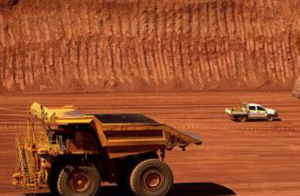#RioTinto #NativeAmericans #CopperMine #RenewableEnergy #SupremeCourt #EnvironmentalLaw #ApacheStronghold #OakFlat
In a pivotal but divisive decision made on Friday, the US appeals court, with a close 6-5 vote, has allowed for the continuation of a land transfer deal in Arizona, which would enable mining giant Rio Tinto Plc to establish a lucrative copper mine. This minuscule margin reflects the complex legal and cultural battle surrounding the Oak Flat land, treasured by Native Americans for its deep religious and cultural significance. The court’s verdict supports a 2014 congressional approval, underpinned by then-President Barack Obama, granting Rio Tinto the rights to exploit the area known as Oak Flat for its Resolution Copper project.
This project has sparked significant controversy due to its expected significant environmental impact, including creating a vast 2-mile-wide crater that would irrevocably desecrate a sacred worship site for the Apache tribe. Despite the clear benefits in terms of copper supply, which is essential for the renewable energy transition, fulfilling over a quarter of US copper demand, the decision has been met with staunch opposition from Native American communities and environmental activists. Luke Goodrich, representing Apache Stronghold, a nonprofit comprising members of Arizona’s San Carlos Apache tribe, vocalized the group’s disappointment and signaled intentions to escalate the matter to the US Supreme Court.
This dispute underscores a broader conversation about the valuation of cultural and environmental integrity versus economic and infrastructural development needs. The area atop which the Resolution Copper mine is to be constructed houses over 40 billion pounds of copper, vital for the burgeoning electric vehicle market, showcasing the fraught balance between advancing renewable energy initiatives and preserving sacred lands.
The back-and-forth legal challenges highlight the ongoing struggle between economic interests, represented by Rio Tinto and governmental decisions, against the cultural and environmental priorities of the Native American communities. Despite the pause President Biden introduced by withdrawing an essential environmental report in March 2021 to reassess the situation, the legal momentum has not swayed in favor of Apache Stronghold, which has faced defeat in three consecutive court rulings.
Rio Tinto, for its part, has committed to engaging with the Native American tribes to reconcile concerns, but the path forward remains contentious. The intricate legal and political layers, underscored by the partisan split among the judges—most of the majority appointed by Republican presidents—reveal the deeply polarized views on national resource management and cultural preservation.







Comments are closed.